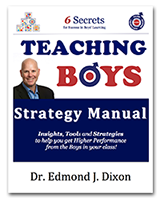FOR YOUNGER BOYS:
Riddles – Young boys love riddles. They are often posed as questions which seem insolvable, but the answer is usually funny! Some fun examples are here: http://www.funology.com/riddles/
Pun- Another favourite of young boys, because it plays with words to cause incongruity. Here are some good ones: http://www.funenglishgames.com/funstuff/funnypuns.html
Anecdotes – Short humorous stories, usually about yourself or something you have experienced first-hand. Here’s a good description of how to keep your story funny: http://www.wikihow.com/Tell-a-Funny-Story
FOR OLDER BOYS:
Wry /Dry Humor “A person with a wry sense of humor means his humor has wryness. Wryness means twisted, contorted or sardonic. It is not always ironic or negative, but has some of these qualities as well. Wry humor is not suited to everyone’s taste”. (from http://www.ask.com) It’s also often done with a straight face and without obviously looking for a “laugh”—only some people may get the joke. Some good examples of Steven Wright and Bill Cosby are found here (suitable for older boys only) http://tjhooper.hubpages.com/hub/how-to-be-funny-dry-humor
Irony – When someone says something but obviously means the opposite; or when the opposite of what one has the right to expect happens. Sometimes it can seem unfair. Here’s a clever cartoon take on irony: http://theoatmeal.com/comics/irony A Dr. Suess example is here: http://en.wikipedia.org/wiki/The_Sneetches_and_Other_Stories
Self- deprecating/ Self-effacing Humor – This is humor or jokes at one’s own expense and is best used by confident, successful boys to put others at ease. If a boy is bullied or has a negative self-image it can be counter-productive, leading to further problems. However, especially for teens who are self-confident, it can be appealing to both adults and members of the opposite sex! http://www.wikihow.com/Sample/Self-Deprecating-Humor
Wit – The type of humor that is usually short, to the point and able to respond to a particular situation. The British have a great tradition of this and some examples can be found at: http://wiki.answers.com/Q/What_are_some_examples_of_wit
FOR ALL BOYS:
Satire – “artistic form, chiefly literary and dramatic, in which human or individual vices, follies, abuses, or shortcomings are held up to censure by means of ridicule, derision, burlesque, irony, parody, caricature, or other methods, sometimes with an intent to inspire social reform.” http://www.britannica.com/EBchecked/topic/524958/satire Examples can be found here: http://www.ehow.com/how_10043042_teach-children-satire.html
Banter/ Repartee – The ability to have a funny or clever conversation by responding to what another says. Playful and takes two to work well. http://www.wikihow.com/Have-a-Witty-Conversation


